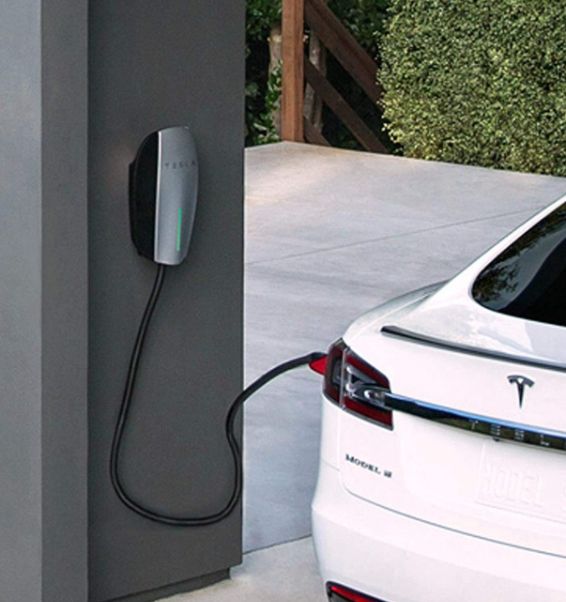
-
New Phase Electric
-
EV Charger
-
0 Comments
-
May 23, 2025
Superchargers Aren’t as Fast or Cheap as You Think
As electric vehicles (EVs) become more popular, many drivers are exploring the convenience of charging their vehicles at home. In Sparks, NV, where EV adoption is on the rise, installing an EV charging station at home offers numerous benefits. This blog will explore the advantages of home EV charging stations and help you understand why investing in one can make your life easier and more efficient.
Electric vehicle owners often face the dilemma of whether to rely on public charging stations or make the switch to home-based charging. While public EV superchargers offer convenience, they may not always be the most cost-effective or reliable option. Let’s dive into the advantages of having an EV charging station at home and why it might be the perfect solution for your EV charging needs.
The Convenience of Charging at Home
One of the main benefits of EV charging stations at home is the convenience. Imagine never having to worry about finding a charging station when you need it most. When you charge your EV at home, it’s just as easy as plugging in your phone at night. You don’t have to drive to a supercharger or wait in line to get your vehicle charged. Simply park your car in the garage, plug it in, and let it charge overnight.
Charging at home also means you can take advantage of off-peak electricity rates. Many electric utilities offer lower rates during nighttime hours, which can significantly reduce the cost of charging your EV. With a home charging station, you can plan your charging around these lower rates, further saving you money.
Moreover, there’s no need to rush or worry about your car’s battery. At home, your car is ready to go every morning with a full charge. Public charging stations can sometimes be crowded or unavailable, especially in high-demand areas. Home charging eliminates this uncertainty and guarantees you have a fully charged vehicle whenever you need it.
Cost Savings of Home EV Charging vs. Public Charging
While public EV superchargers may seem like a quick fix, they often come with hidden costs. For instance, the average cost to charge at a supercharger can be higher than charging at home, particularly for long-term use. The cost per kilowatt-hour (kWh) at a supercharger varies by location, but in general, it tends to be more expensive than the rate you would pay for electricity at home.
Charging at home provides you with predictable electricity costs, allowing you to take advantage of home energy plans or time-of-use rates. These rates can be significantly lower during off-peak hours, helping you keep your overall charging costs down. Plus, if you install a level 2 home charging station, you’ll enjoy faster charging times compared to using a standard outlet.
Although the initial cost of installing a home EV charging station might seem daunting, the long-term savings can easily outweigh the initial investment. With energy-efficient home charging options, many homeowners find that they save more money over time than they would if they relied on public chargers. The peace of mind knowing that your charging costs are stable and under your control is a major benefit for many EV owners.
Faster Charging Times with Home Charging Stations
Another key benefit of having an EV charging station at home is faster charging times. Public chargers, especially superchargers, can often deliver high-speed charging, but they are not always located conveniently or accessible when needed. Plus, they can be crowded during peak hours, leading to wait times that might not be ideal if you’re in a hurry.
Home charging stations, especially level 2 chargers, offer a faster and more consistent charging experience. With a level 2 home charger, you can expect your EV to be fully charged overnight or in just a few hours, depending on your car’s battery size. This can be particularly beneficial for individuals who have limited time during the day or who need their vehicle ready for work early in the morning.
In addition, home charging eliminates the inconvenience of waiting for a charger to become available. There’s no need to plan your day around when you can charge your car—simply plug it in when you get home, and it will be ready to go when you need it.
Charging Flexibility: EV Charging at Home vs. Supercharger
The flexibility of charging at home can’t be overstated. Public charging stations, especially superchargers, are not as plentiful as gas stations, and in some areas, they might be far from your home or daily route. The process of finding an available charger can be a hassle, particularly if you’re traveling or if the chargers are frequently in use.
In contrast, having an EV charging station at home means you have 24/7 access to your charger. You don’t need to worry about whether there is a free charging spot available or whether you will be charged more for using a public charger. With home charging, you are in complete control of when and how your car is charged.
Furthermore, many drivers prefer the control that comes with home charging. You can set specific charging times, track your energy usage, and even integrate your home charger with smart home systems for added convenience. This level of customization is simply not available when relying on public charging stations.
How Many kW Do You Need to Charge Your EV?
One of the most common questions about EV charging is how many kilowatts (kW) are needed to charge an electric vehicle. The amount of energy required to fully charge an EV depends on the vehicle’s battery size and the charging station’s power output. The average home charging station typically offers 240 volts of power, which is suitable for most EVs.
A standard home charging station typically provides between 3.7 to 7.7 kW of charging power. This means that a typical EV can be fully charged in approximately 6 to 12 hours, depending on the vehicle’s battery capacity and the charging station’s power output. In comparison, superchargers can deliver up to 250 kW, providing much faster charging times but at a higher cost.
Understanding how many kW your vehicle needs to charge will help you choose the right charging station for your home. Keep in mind that the faster the charger, the higher the upfront installation cost, but the convenience and speed it offers can make it worth the investment.
Why New Phase Electric Is Your Go-To for EV Charging Station Installation
At New Phase Electric, we specialize in installing high-quality EV charging stations in Sparks, NV. Our team is dedicated to providing fast, reliable service and expert advice to help you find the best charging solution for your home. We understand the growing need for home EV charging stations and are committed to offering top-notch installation services at competitive prices.
Whether you’re looking to install a level 2 charging station or upgrade your existing setup, we’ve got you covered. Our team works with you to assess your needs and ensure that your EV charging station is installed safely and efficiently. We also offer guidance on how to maximize your energy savings through off-peak charging and how to maintain your charging system for optimal performance.
Ready to Install Your EV Charging Station?
If you’re ready to experience the convenience, cost savings, and fast charging of a home EV charging station, give New Phase Electric a call today at (775) 525-0129. Our team is here to help you make the transition to home-based EV charging with expert installation and guidance every step of the way.
By investing in a home EV charging station, you’re not only making life easier, but you’re also contributing to a greener future. Make the switch to home charging today with New Phase Electric and enjoy all the benefits that come with charging your electric vehicle at home.



